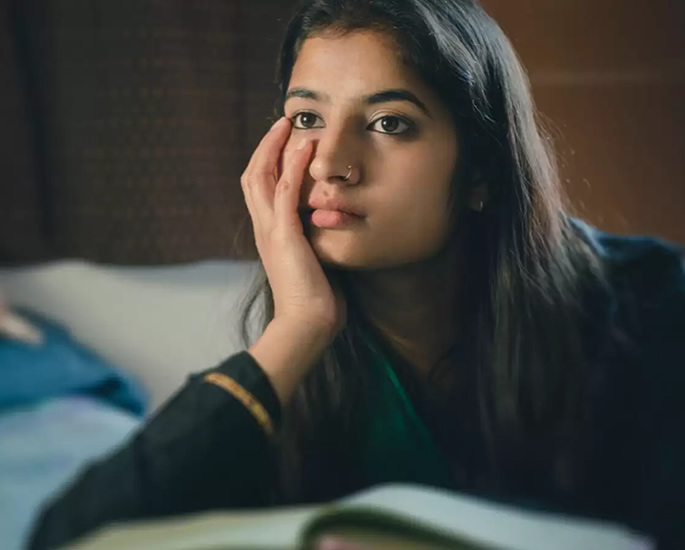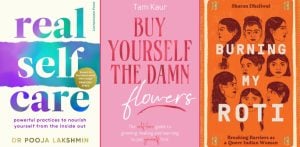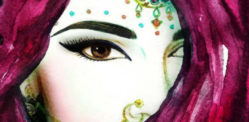"we wouldn’t be able to hold our heads up"
Ideas of izzat (honour and respect) in British Pakistani families and communities shape family dynamics, societal expectations, individual choices and autonomy.
However, to what extent does izzat matter today?
Do ideas of izzat still powerfully influence British Pakistani women’s lives? Are there generational differences and tensions?
Pakistani communities and families are highly collectivist. Therefore, the emphasis is often on how actions and behaviours impact everyone rather than just the individual.
Accordingly, women’s conduct and actions can be viewed as reflecting positively or negatively on the entire family.
Research has shown that ideas of izzat can be used to try and regulate, police and shape how women dress, behave and what they do.
Yet what does this mean for British Pakistani women who navigate two worlds and cultures?
DESIblitz examines whether ideas of izzat still influence British Pakistani women’s lives.
Women Positioned as Holding Family Honour

Crucially, women are said to hold most potently their family’s izzat and the risk of behzti (shame and dishonour).
Izzat originates from South Asian cultures, such as Pakistan, India, and Bangladesh. Each language spoken within South Asian communities might offer different words for honour.
Nevertheless, research shows that izzat and the practices associated with the concept are reflected in the diversity of cultures and religious practices among Desi groups.
Jasvinder Sanghera, in her book Daughters of Shame, said izzat is “the cornerstone of the Asian community and since the beginning of time it’s been the job of girls and women to keep it polished”.
“And that’s really hard because so many things can tarnish it.”
Concern around family izzat can sway individual decisions to avoid behzti.
Izzat and preventing behzti are concerns for men and women. However, how they are said to matter differs.
Women’s izzat is linked to modesty, behaviour, and relationships, while men’s is tied to providing, protecting, and maintaining family authority and honour.
Accordingly, Desi women’s conduct, bodies and actions can be more heavily scrutinised, policed and judged.
When women do not conform to codes of conduct and norms, they can be said to be breaking the family izzat.
When izzat is broken, it can lead to a woman and their families facing judgement and stigma. It can also result in women being disowned and facing honour-based violence and killings.
Are there Generational Differences and Changes?

Research has suggested that allegiance to the cultural practices of the country of origin is stronger in first-generation immigrants. It tends to become diluted in subsequent generations.
This would imply that ideas around izzat and how it may manifest and police younger generations of British Pakistani women would have weakened. However, has it?
Second-generation British Pakistani Rozina, who is 48 and has four children, stated:
“Izzat and behzti do count in my daily life. Yes, it definitely does, especially for my age group.
“One hundred per cent, the men care when it comes to women and izzat.
“The younger generation maybe not so much. My kids Mobeen* and Zeeshan* like to remind me that from the 2000s upwards, the words aren’t in the dictionary they use.”
Rozina’s children’s perspective suggests that izzat is losing its significance. This indicates a gradual detachment from traditional honour-based values and norms.
Twenty-nine-year-old Zeeshan*, a third-generation British Pakistani, told DESIblitz:
“Somethings have changed for sure.
“It’s ok for girls to marry outside of the family or culture, not shameful like before.”
“At least in my family, it’s cool now to marry outside. They can go out and about and work; it’s respectable.
“But what is shameful and holds izzat definitely still matters. My sisters can’t dress in mini skirts or date, hook-up with guys.
“That isn’t done; we wouldn’t be able to hold our heads up. One doing wrong would impact the whole family.
“We know it, and they do, so they know they can wear English clothes, work and do things…but limits.”
Zeeshan’s words show that there have been shifts in how izzat is understood. His family has seen women have more freedom in some areas, like marriage, dress, and mobility.
However, he highlights that certain expectations and restrictions remain, particularly regarding clothing and relationships, to maintain family honour.
Younger generations of British Pakistani women can enjoy greater autonomy. Yet, expectations around modesty and sexual conduct remain strict.
Restrictions on Mobility & Autonomy

Ideas around family izzat can impose restrictions on women’s choices and mobility, limiting their ability to socialise and move about freely.
This can lead to challenges for British Pakistani women as they attempt to live the life they wish.
British Pakistani families, particularly in traditional households, expect girls and women to avoid certain spaces and be out only at certain times.
Moreover, there can be an expectation for British Pakistani women not to socialise in mixed-gendered spaces without a male relative. The goal is to ensure no gossip or reputational damage.
Rozina firmly maintained:
“It matters what people think, like typical things like girls going out late – it’s not done. It’s all the risks involved. God forbid if someone attacked them or they were raped.
“It is a big thing. First, it’s for their safety; second, izzat and behzti are big things.”
“Say Mobeen was out late and got attacked; on the face of it, not her fault. But people will say, ‘Why was she out so late? What was she doing?’
“It is behzti for the parents; people will ask, ‘Why wasn’t she with someone who could protect her?’
“Look, I go out at night when I have things to do; there’s a purpose. I pick up the boys from work and drop them off.
“But if I was going out for a midnight ride or to go out with friends and something kicked off, no. That’s a different scenario. There’s always borderlines.”
When asked if her daughter Mobeen, who is unmarried, would be able to go alone overnight somewhere for work or a holiday, she said a firm “no.”
Rozina’s words highlight how izzat shapes concerns about women’s safety and the potential for reputational damage. Women face greater scrutiny and restrictions than men.
Although younger generations may not feel izzat as strongly, many still navigate its influence. While attitudes are evolving, the pressure to conform remains a factor in many British Pakistani women’s lives.
Are There Differing Attitudes within Generations?

Within the same generation, differing attitudes towards izzat and conforming or resisting can lead to tension and conflict.
In contrast to Rozina, 49-year-old second-generation British Pakistani Nasreen* asserted:
“My girls are 28 and 32, unmarried, and live at home. They respect me and my husband and tell us where they are going, and we discuss things.
“But we trust them and don’t want them missing out like I did. They go out, have male friends, come home late and go on holidays alone and with friends.
“Like my sons, they don’t ask permission; it’s not a stain on our honour. They cannot put life on hold until they are married.
“All my family know the girls go on holiday with friends.
“But we don’t advertise them going away alone for holidays and work.”
“I’m not ashamed, but we don’t need the headache, especially my husband. And it has nothing to do with them.
“My sister has told her daughters ‘nowhere overnight alone’. She told them that they ‘cannot mix with men outside the family without a male relative’.
“For her, it’s also from a religious perspective; for example, women are not meant to travel alone. For her, it puts the girls’ and family’s name at risk.”
Nasreen’s statement illustrates differing attitudes toward izzat and its maintenance within British Pakistani families. She remains aware of family and community scrutiny and thus avoids openly discussing it to prevent “arguments” and judgement.
Her sister’s religious perspective adds another layer, showing how interpretations and understandings of izzat influence expectations differently within the same family.
Emotional Tolls and Negotiation

Even where ideas of izzat have become diluted and may not be of personal importance, they can impact British Pakistani women’s lives.
Resisting and questioning the status quo can take an emotional toll.
Aliyah*, a 30-year-old third-generation British Pakistani, said:
“All this BS around izzat I hate, but there are things I don’t do because it matters to my mum. She does care a little about what people will say.
“It’s odd mum is super liberal in so many ways. I don’t have to get married if I don’t want to. I studied as much as I wanted to.
“And I go out with male and female friends. I travel with friends and alone.
“Unlike a lot of my cousin-sisters, the older I’ve got, the more freedom I’ve had. Once they left school, it was always ‘wait until you marry’.
“But there are certain clothes I don’t wear that show the bum because mum thinks it’s an izzat issue and family, people will judge.
“For me, it’s ‘let them’, but I know it’ll hurt her.
“I did wear a scarf around my neck all the time for her but stopped, which caused arguments and stress. I’m covered, but apparently, it’s not enough.
“So if relatives come over or we go to their house, it’s around my neck. But I refuse to put it on my head just for relatives.”
Aliyah’s experience highlights the nuanced and evolving influence of izzat through interpersonal relationships for British Pakistani women.
While she rejects traditional notions of what constitutes izzat, she still modifies her behaviour and dress to accommodate her mother.
Her ability to socialise freely and travel independently reflects shifting generational attitudes. However, clothing choices remain a site of negotiation, showing that ideas of izzat still dictate aspects of personal expression.
The contrast between Aliyah’s autonomy and her mother’s lingering concerns suggests that ideas of honour and shame continue to exert subtle pressures through family dynamics.
While the influence of izzat on British Pakistani women has evolved, it remains a significant factor in shaping their lives.
Izzat can refer to respecting oneself and giving respect to others in speech and conduct. It can be a beautiful thing.
Nevertheless, the reality is it can be and is used as a tool of control and policing to varying degrees.
Generational shifts have led to greater autonomy in areas such as education, careers, and socialising.
However, expectations around clothing, modesty, and family reputation continue to impose restrictions and add pressure to conform.
Women may personally reject traditional ideas of izzat and the associated practices but often negotiate and compromise due to familial expectations and feelings.
Mothers and daughters, in particular, can navigate a delicate balance between socio-cultural and religious values, respecting parental feelings and following personal needs and freedoms.
Ideologies and norms around izzat and its maintenance continue to influence British Pakistani women’s everyday lives in complex and often subtle ways.






























































